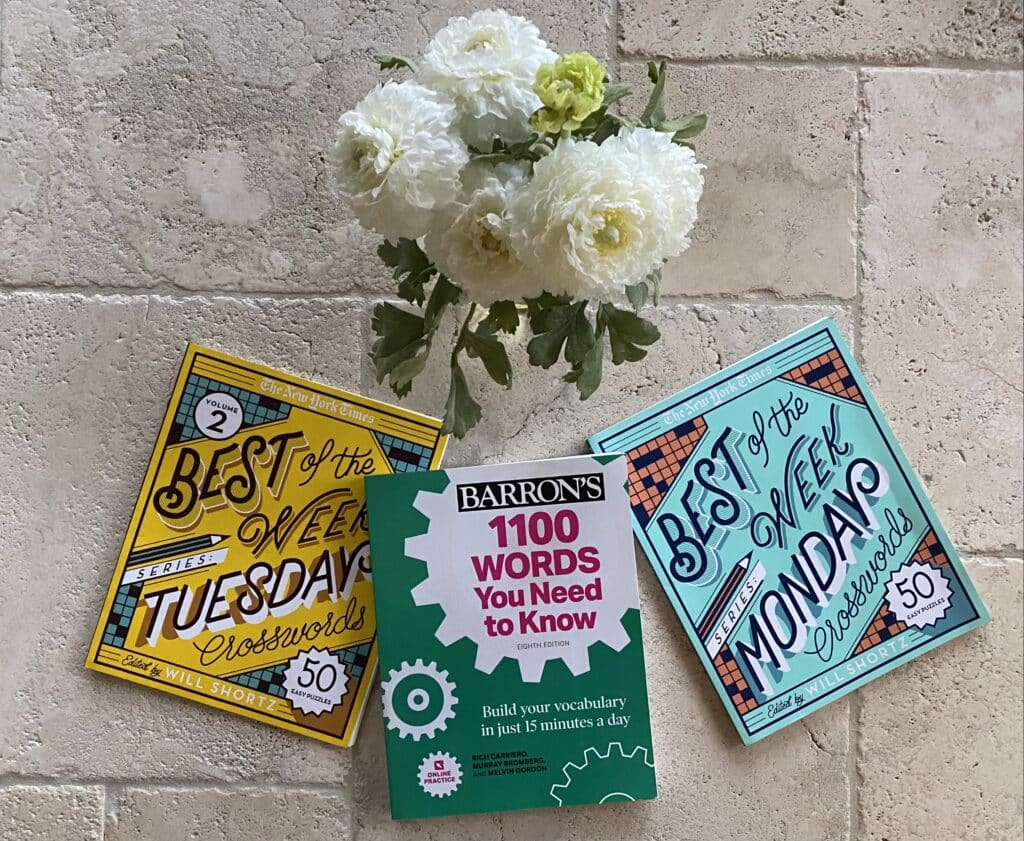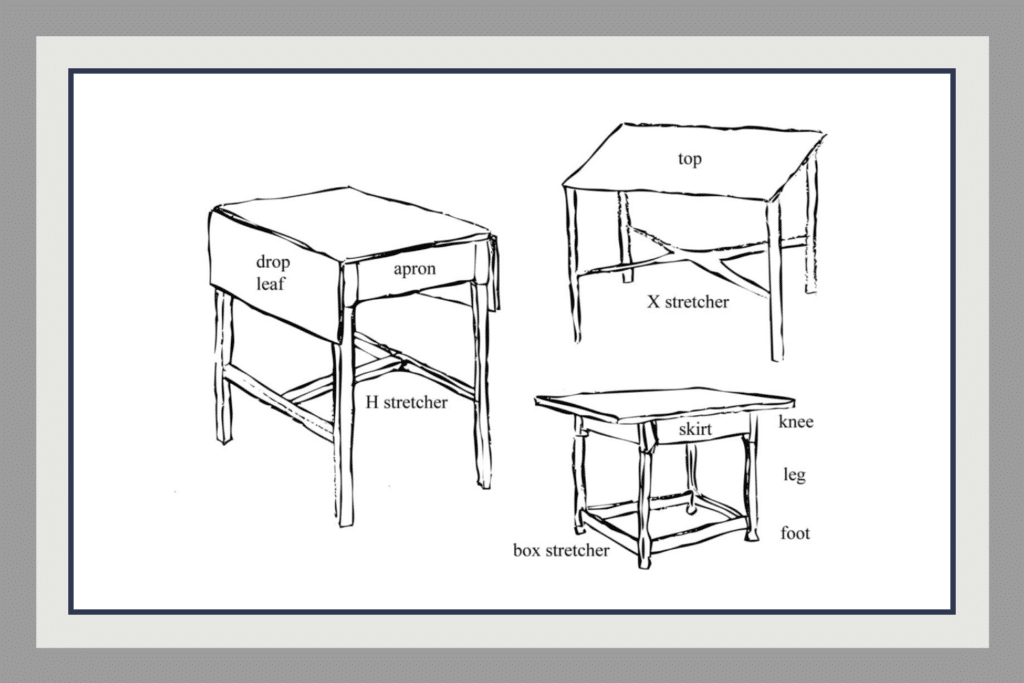
I hear myself using some of the same words over and over. Words like nice, cool, wow, and pretty. Maybe the guy is nice, but there’s a plethora of words that may better describe him. Maybe he’s good-natured, pleasant, friendly, hospitable, cordial, amiable, kind or winsome. And alternatively, the dress may be pretty, but it may also be colorful, darling, fetching, attractive, lovely or glamorous.
As I was debating whether my vocabulary was dwindling, I ran across research that shows our vocabularies are shrinking across all levels of educational attainment, with the largest declines among those with a Bachelor’s or graduate degree.
Although verbal fluency typically declines with age, there are other variables impacting this downward trend. Our dependence on digital communication leads the list, with what some believe is the dumbing down of communication. When we text, words are filled in for us. As we write emails, Google anticipates what we want to say. The use of emojis also prevents us from using additional words to describe how we feel.
In addition, we are absorbing information through phones, tablets and computers and spending less time hearing each other speak. Verbal communication is what enables us to maintain or expand our vocabulary.
I found this all unsettling and set out on a quest to find the best ways to build a vocabulary and – here’s the trick – use those words in everyday conversations. At the same time, I wanted it to be fun and easy. Reading the dictionary was out. Here’s what I found to keep our vocabularies robust.
Dictionary.com App and Website
This handy tool is awesome, or should I say invaluable? The app and website are both a dictionary and a thesaurus. The app is available for iPhone, iPad and Android devices and offers word-of-the-day (complete with an audio pronunciation), synonym of the day, and word games. It’s also a handy tool for looking up words that are unfamiliar to you.
Today’s word of the day is refulgent (adjective; ri-fuhl-juhnt), meaning shining brightly; radiant; gleaming. In a sentence: Crystal chandeliers and gilded walls made the opera house a refulgent setting for the ball. To learn a word, it’s amusing to attempt to use the word throughout the day. This is sometimes a challenge and can be comical.
Crossword Puzzles
My grandmother was a pro at crosswords and her vocabulary was impressive. My husband is a close second and can spend hours with his pencil, scratching away. I’ve never been skilled at crossword puzzles and found them frustrating because I would abide by the rule of not looking up the answers in the back. In the spirit of improving vocabulary, I hereby declare that such cheating is acceptable and is a great way to improve vocabulary, spelling and memory.
Several years ago, I dug out my old crossword puzzle books (some dated 1999) and gave them a try. NY Times Mondays still give me a workout, with my husband periodically encouraging me to challenge myself with Tuesday puzzles.
For those new to the world of crosswords, the NYTimes crosswords increase in difficulty throughout the week, with the easiest puzzle on Monday and the most difficult on Saturday. The larger Sunday puzzle is typically as difficult as a Thursday puzzle.
I have a new appreciation of these puzzles that have existed since 1913 (they were called word-cross and published in the New York World), and they are an optimal way to expand our vocabularies.
Two Good Books
I perused through the vocabulary builder books and discovered two that are worthy of purchase.Barron’s 1100 Words You Need to Know offers daily 15-minute learning sessions that focus on six words. On the fifth day of each week, it’s a review of the words for the week. The book also offers online quizzes plus scoring to test your progress. Some words you’ll know, others may be new. I love this book, and apparently, I’m not alone. It’s been a best seller for four decades and earns 4 1/2 stars on Amazon.
The second book is 30 Days to a More Powerful Vocabulary. This portable paperback contains exercises and self-tests and is organized around themes. For example, Words About Your Feelings or Verbs Give You Power. This also earns 4 1/2 stars on Amazon. The font is pretty tiny, so your reading glasses and an ultra-sharp pencil will be required.

Alexa’s Magoosh Vocabulary Builder
Amazon Echo devices are hands-free speakers and clocks that you control with your voice. Echo connects to the Alexa voice service to play music, ask questions, check the weather, and more. If you have an Echo, there are Alexa Skills you can access. For example, you can tell her (yes, she feels alive): “Alexa, play Jeopardy” or “Alexa, open Vocabulary Builder.”
Once enabled, the Magoosh Vocabulary Builder plays a five-question game with you. She gives you a word and then asks you to name the synonym out of a list of possibilities. All of the words have been handpicked by experts who prepare students for the various college entrance exams. It’s a fun way to study more advanced vocabulary.
Google Images
There’s a phenomenon referred to as losing one’s nouns and I’m guessing all of us want to avoid saying “hand me that thing.” There are some nouns we don’t use all that often, but we ought to remember them.
Google Images is a valuable resource to build our noun vocabulary. Search parts of a table, parts of a house, or parts of most nouns and then click on images. Up comes an illustration or photo with labels indicating the various parts (nouns).
So, you knock your knee on the apron of the table, not the thingy underneath the table. Or, the fascia fell off the house, not the thingamajig below the gutter.

Word Games
Word games are another fantastic way to expand your vocabulary and get your brain working. A study published in the International Journal of Geriatric Psychiatry found that doing word puzzles improves attention, memory, executive function, and information processing. There are so many choices when it comes to word puzzles, some easier than others.
Sixty and Me offers over 30 word games to challenge your mind and expand your vocabulary in the process.
Reading
As Walt Disney once said, “There is more treasure in books than in all the pirate’s loot on Treasure Island.” Reading certainly teaches us facts and entertains us with stories, but reading also exposes us to around 90,000 words in the average adult fiction book. While most words are familiar to us, reading keeps our vocabulary fresh.
The wonderful advantage of stumbling across an unfamiliar word while reading is that you get context with the word used in a sentence. And, if using an eReader like the Kindle, you can easily look up the meaning of the word.
Aren’t these awesome ways to stay sharp and build your vocabulary? Actually, they’re entertaining, effective, interesting, pleasant and engrossing ways to learn.
Additional read “WHERE DID THAT WORD GO?” THE TIP-OF-THE-TONGUE PHENOMENON.
Let’s Have a Conversation:
Are you finding that your vocabulary is shrinking? What are some ways you’re trying to expand your vocabulary? What new words did you learn today?





